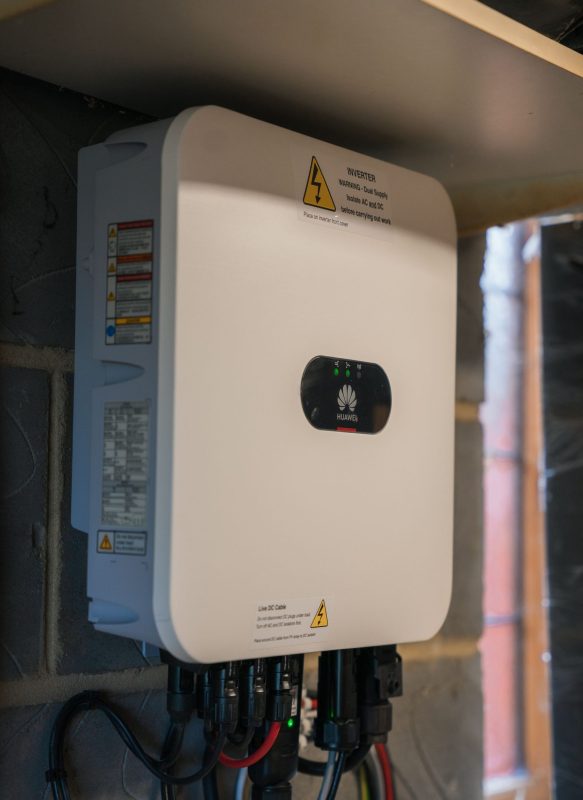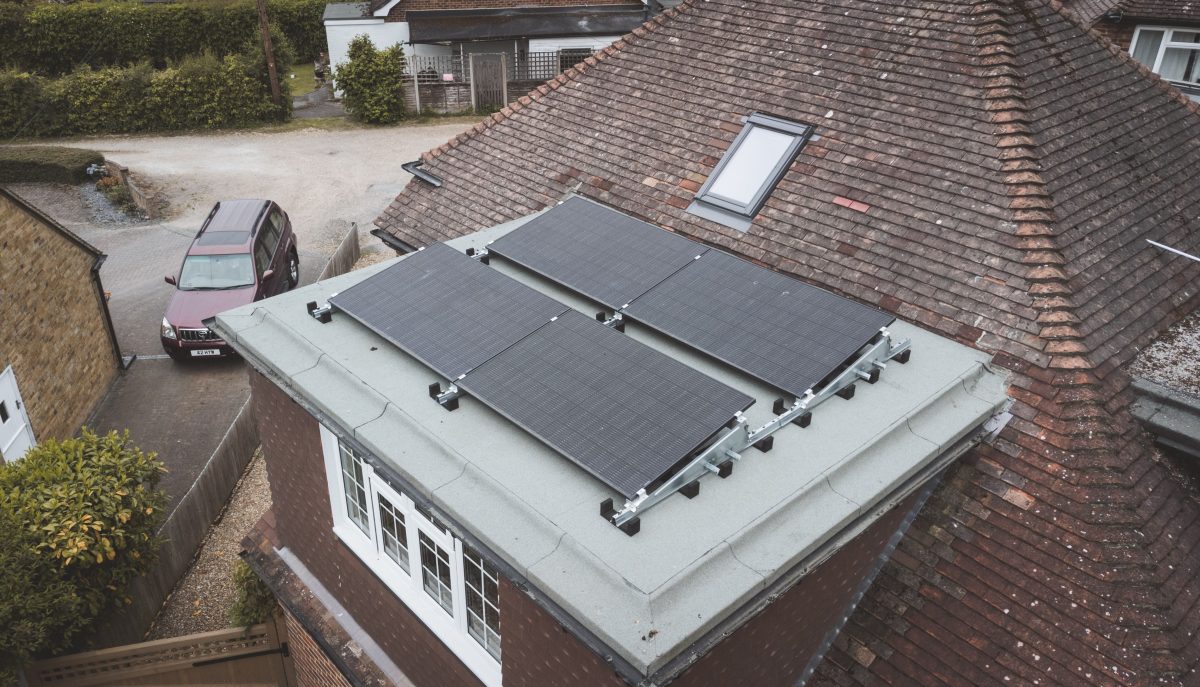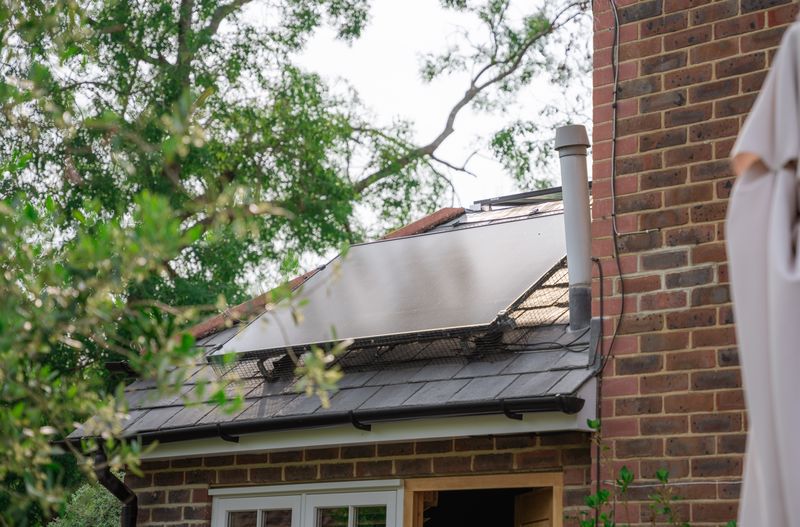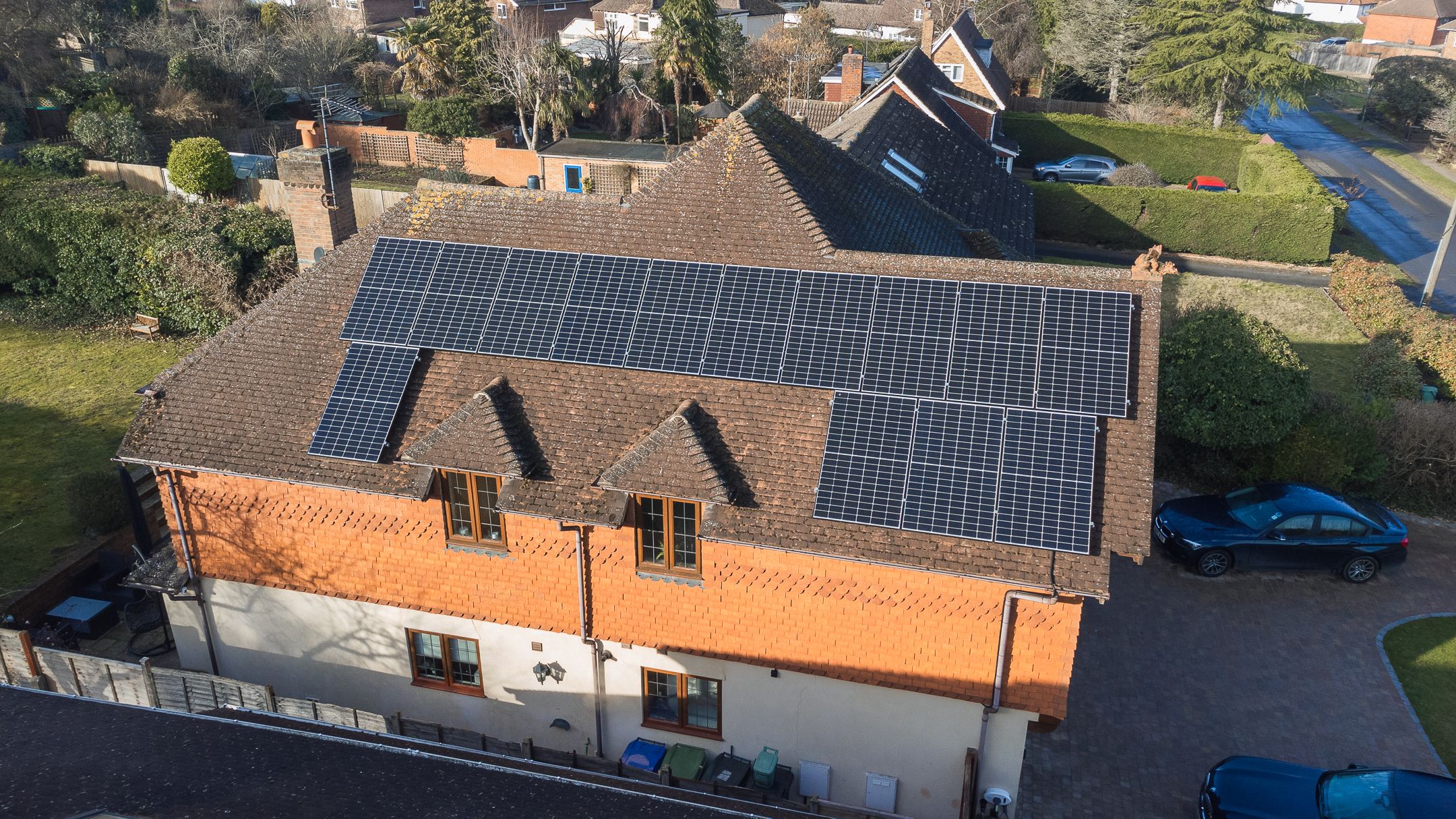With climate change and expensive energy costs more pressing issues than ever, now is the time to learn more about renewable energy sources. At Jewel Renewables, we specialise in renewable energy products and help Surrey homeowners become more environmentally friendly.
What Is Non Renewable vs Renewable Energy?
Renewable energy is the term used to describe sources of energy that will never run out. Renewable energy is sustainable, and its use will not jeopardise the health of the planet.

In comparison, non-renewable energy sources are finite. This means that there will come a day when these fuels are no longer available. In addition to this, the mining and use of non-renewable energy damage the environment. Fossil fuels generate harmful greenhouse gases, polluting the earth and damaging the planet’s atmosphere. The use of fossil fuels is responsible for over 90% of all CO2 emissions and 75% of global greenhouse emissions.
Examples of non-renewable energy sources include;
- Oil
- Natural gas
- Nuclear energy (uranium)
- Coal
Non-renewable energy may be playing a large role in climate change, but there has been a huge global effort in recent years to reduce emissions and save the planet. Switching to renewable energy is one of the most effective ways to protect the earth.
Types Of Renewable Energy Sources
Just as there is more than one source of non-renewable energy, there are also multiple sources of renewable energy. Let’s take a closer look at these sustainable resources.
• Solar Energy

Solar power is one of the best sustainable energy sources available. As long as the sun rises every day, there will always be the potential to produce an abundance of solar energy. Modern homeowners are able to utilise the power of sunlight by investing in a solar panel installation. Solar panels convert solar energy into an electrical current that can be used to power household appliances. Homeowners using solar energy rely less on electricity from the National Grid and benefit from cheaper energy bills.
• Wind Energy
Wind energy is another readily available green energy source. Solar energy is created using sunlight's power, while wind power is generated by utilising the kinetic energy of moving air.
Traditionally, windmills were used to grind grain or pump water. Nowadays, modern wind farms are different; they consist of several wind turbines that create electricity.
While domestic wind turbines are an option for some properties, wind energy is most frequently used to power generators and feed electricity to the National Grid.
• Hydro Energy
Hydro energy is another form of renewable energy and is arguably a more reliable source than solar and wind. To generate maximum levels of solar or wind energy, there needs to be a lot of sunlight and a steady flow of wind. These natural elements are prone to frequent change, whereas hydro energy is more predictable.
Hydro power is generated by creating a controlled flow of water, which is then used to move an electricity generating turbine. Dams and reservoirs are the most common methods used to generate commercial hydro power, although there are ways homeowners can generate hydro energy for themselves on a smaller scale. Tidal energy is another form of hydro energy and is generated by wielding energy from the predictable movements of the sea.
• Geothermal Energy
There is an abundance of natural heat right below all of our feet, down beneath the earth’s surface. This natural heat can be used to generate both heat from homes/businesses and electricity. This sustainable energy is made by drawing hot liquid from below the earth, dropping the pressure and turning it to steam when it reaches the surface.
This steam is then used to spin turbines and generate geothermal energy. While this type of renewable energy is used here in the UK, it is more frequently used in countries such as Iceland, Kenya and the Philippines.
• Biomass Energy
The process of converting industrial, domestic, and agricultural waste into fuel is known as biomass energy production. Biomass energy is created by burning organic materials and generating gas, liquid, and solid fuel sources. By working with plant and animal waste and their stored solar energy, clean and organic fuels can be made, making it arguably the most economical and environmentally friendly sustainable energy source.
Go Green With Jewel Renewables

If you are interested in living a more environmentally friendly lifestyle, switching to solar power is a great place to start. At Jewel Renewables, we bring Surrey homeowners a range of high quality renewable energy products. We specialise in PV solar panel installations, but also provide advanced energy storage systems and electrical car chargers.
To begin your journey towards a more sustainable life, contact our expert team. You can speak to the Jewel Renewables experts by calling 01252 939 597 or filling out our online contact form. Alternatively, start your quote today for the cost of solar panels.
We look forward to making your home greener & more sustainable than ever.

Our Tree Planting Mission
Find out more
